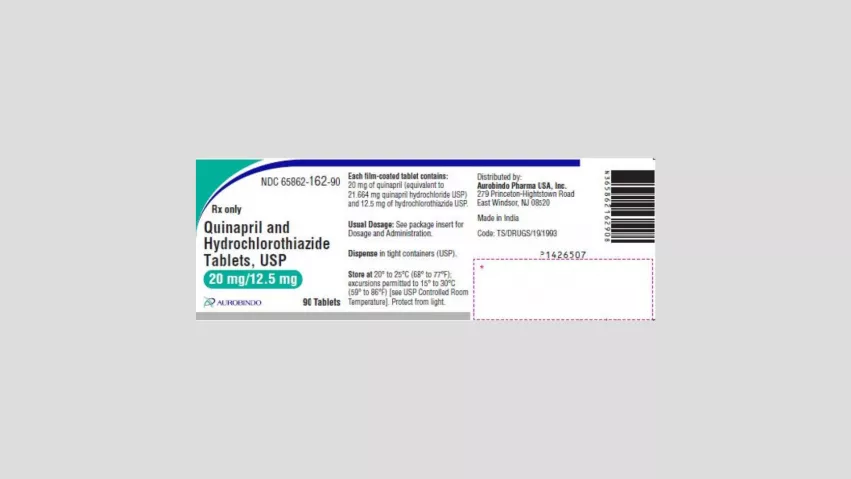FDA announces new recall of blood pressure medication due to potential cancer risk
The U.S. Food and Drug Administration (FDA) has announced that Aurobindo Pharma USA is recalling two lots of quinapril and hydrochlorothiazide tablets due to unacceptable levels of nitrosamine. The tablets are commonly prescribed for the treatment of hypertension.
Nitrosamine, or N-nitroso-quinapril, is regularly found in water and food, but at low levels. Exposure to high levels, however, has been linked with an elevated risk of cancer. No adverse events have been linked to this issue; Aurobindo Pharma USA is recalling the tablets out of caution.
“Patients should contact their doctor or health care provider about whether to continue taking their medication, or whether to consider an alternative treatment prior to returning their medication,” according to an advisory on the FDA’s website.
The FDA advisory also detailed the appearance of the medication, saying they are “pink colored, scored, round shaped, biconvex, film-coated tablets, debossed with ‘D’ on the scored side and ‘19’ on the other side.”
The two recalled lots began shipping to customers in May 2021. The lot numbers are QE2021005-A and QE2021010-A, and they expire in January 2023.
All distributors and customers impacted by this recall will be notified by phone and in writing. All recalled products are to be returned if identified.
Any consumers with additional questions about this recall—or any who may want to report an adverse event—can email Aurobindo Pharma at pvg@aurobindousa.com. Adverse events can also be reported to the FDA’s MedWatch Adverse Event Reporting Program.


